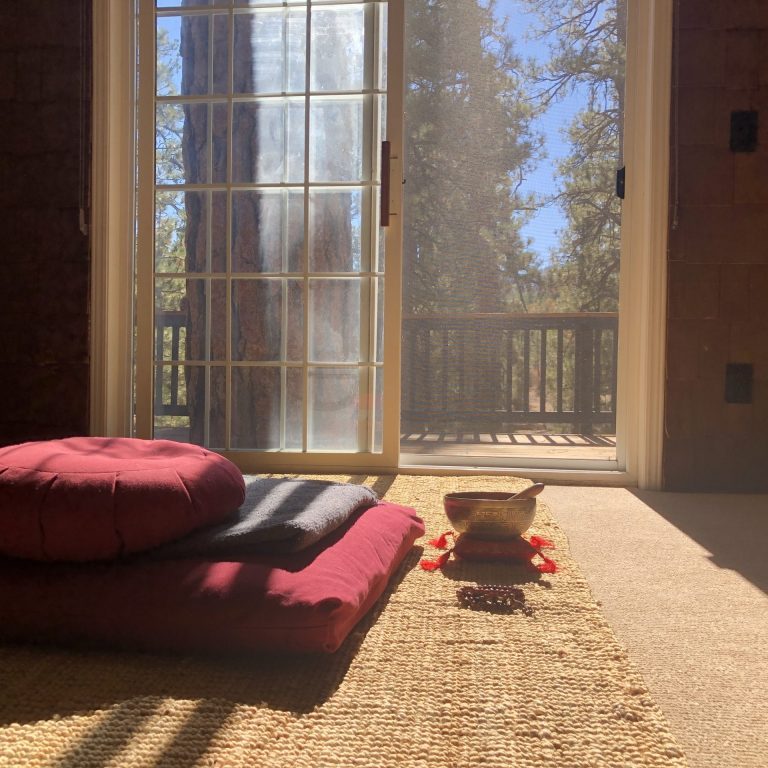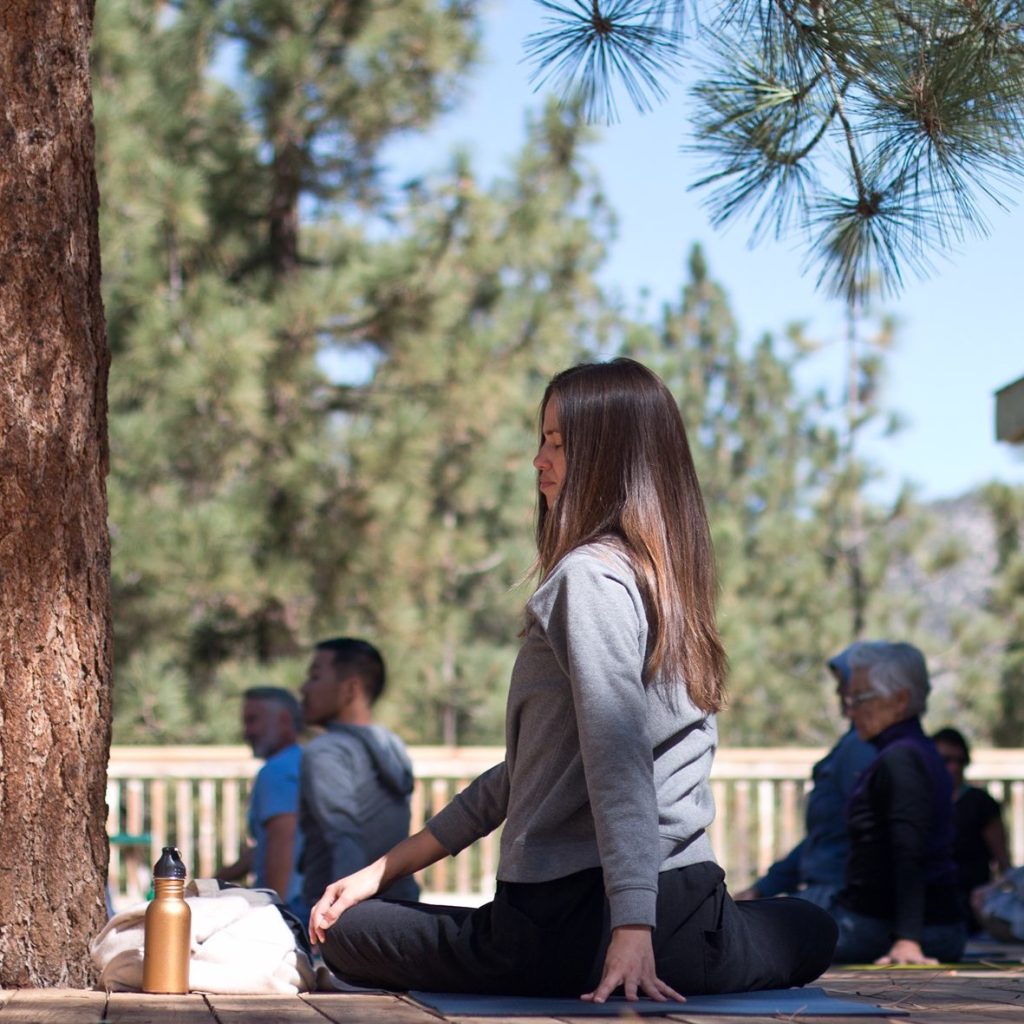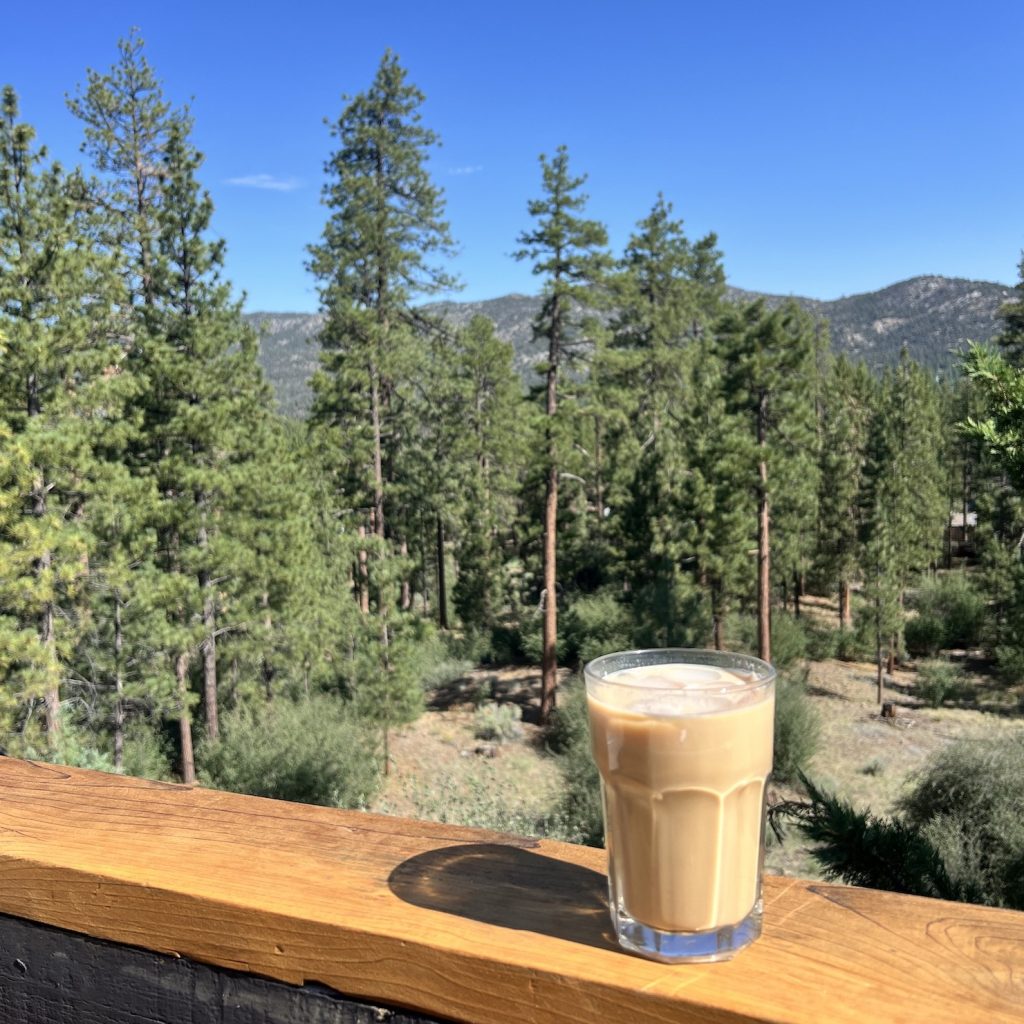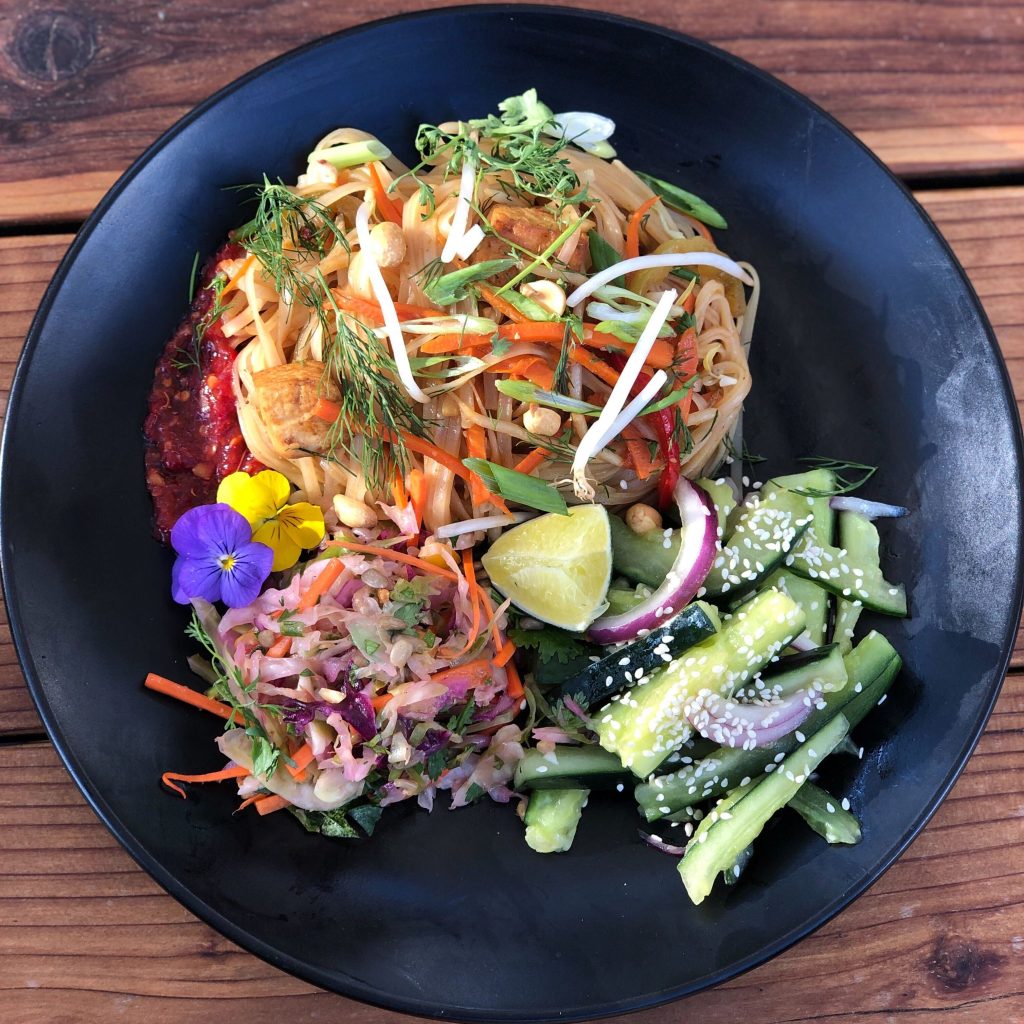WHAT IS RETREAT?
Why Go On Retreat?
Retreats offer opportunities for deepened, focused, and extended practice under the guidance of expert teachers. A “momentum of mindfulness” and multiple insights can develop in a retreat setting that would be far more difficult to attain when one is in their “daily life” with all of the responsibilities, duties, and distractions that exist in that setting.
Big Bear Retreat Center is designed and staffed as a full-service retreat destination so you may focus on your practice.
What to Expect?
What is a Silent Retreat?
Silent retreats or Insight, also known as Vipassana, meditation retreats are structured with time for sitting and walking meditation, rest, mindful eating, and contemplative teachings to deepen your embodied understanding and experience of the mindfulness practices offered. Along with instructions and guidance, there will be opportunity for practice discussion meetings with the teachers to support you within the container of a silent retreat.
What is Noble Silence?
While practicing Noble Silence on retreat, participants agree to refrain from talking, using cell phones or other technology, and reading. Honoring this commitment to turn inward has a direct and profound influence on deepening our meditation. Guidelines for communication with retreat managers and teachers will be offered at the beginning of each retreat.
Many of our Silent Meditation Retreats are offered freely in the tradition of Dana (Generosity). Learn more about Dana here.


What is a Relational Retreat or Workshop Intensive?
Mindfulness and nature-based Relational Retreats and Workshop Intensives at BBRC are a different style of retreat than a silent meditation retreat. They are more interactive while still holding similar themes of connection with self, each other, and nature. The intention is to cultivate a mindful awareness that can be integrated into our everyday lives.
Relational retreat: Relational retreats include periods of mindful communication and other relational exercises held in community. There are periods of silence and possible meditation sits – the specifics vary from teacher and approach. There may be music, writing, reflection, dancing or other creative or expressive practices beyond just meditation.
Workshops & Intensives: These retreats are deep dives into a subject. These are held in a holistic fashion, blending mindfulness, well-being, and growth work on a theme. There may be classroom style trainings, practical application or discussion, movement such as yoga, and other mindfulness based supportive practices.
A Typical Day On Retreat
Arrival Day
2-4 | Arrival & Registration
5 | Welcome walk
6 | Dinner
7:30 | Opening Session
(on meditation retreats: silence begins)
9 | Evening rest
Full Day
6 | Wake up
6:30 | Early Morning Practice
7: 30 | Breakfast
8:30 -12 | Morning Practice
12:30 | Lunch
1-5 | Afternoon Practice
5:30 | Dinner
7-9 | Evening Practice
9 | Evening Rest
Departure Day
6 | Morning schedule
7: 30 | Breakfast
8:30 – 9:30 | Packing & Cabin Cleaning
10-11 | Closing Session
(on meditation retreats: silence ends)
11-12 | Tea and snacks available prior to departure
12 | Checkout of Campus





